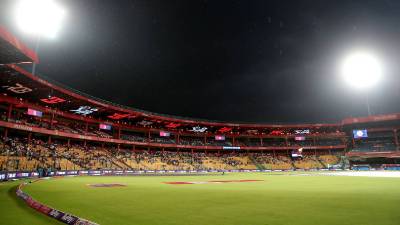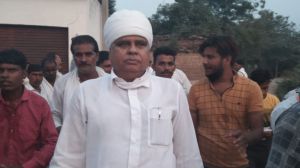From the battle zone
It was wonderful to see Barkha Datt reporting from Kargil for Star TV. Guns boomed, rockets darted past her with earsplitting screams and...

It was wonderful to see Barkha Datt reporting from Kargil for Star TV. Guns boomed, rockets darted past her with earsplitting screams and she almost jumped out of her skin as some lethal missile missed her by inches and exploded with a deafening noise somewhere behind her.
The previous day she was there with the soldiers in their bunker as they waited to take off on their final assault of a Kargil peak held by the enemy. She had on a helmet and looked like one of the boys, earnest, even slightly nervous but determined to give a first-hand account from the Bofors lines of the war front. Not for her the briefings at Shastri Bhavan or at Drass. Here she was with the soldiers, her heart thudding in unison with theirs, sharing their anguish and their euphoria.
Her colleague, cameraman Ajmal Jami, was also doing a great job. But if my heart went out to Barkha, there was a reason for it. She reminded me of her mother and one of my closest friends, Prabha Datt. Barkha must have been barely 10 or 12 years old whenher mother died at the height of her career as a journalist 8212; but obviously she has inherited some of her mother8217;s daredevil qualities.
But what a sea-change there has been in journalism from Prabha8217;s times to Barkha8217;s. When Prabha, starry-eyed but still wet behind her ears, wanted to go to the front to cover the 1965 war for her newspaper, The Hindustan Times, they would not let her go. After all, it was a man8217;s job. And the war correspondent8217;s training was being given to all those who wished to cover the war. Prabha, a mere strip of a girl, had not been through the course.
For Prabha journalism had been one big battle from the word go. She fought with the editor to get into the newspaper. The great Mulgaonkar would not allow a woman on the newspaper rolls in 1964. So Prabha challenged, if you take a single woman, you will have to take me. Soon after Nandini Narain, with a degree in journalism from the US, was appointed on the desk of HT.
Then Prabha barged into the editor8217;s room again and demandedthat she should get a job. She was willing to sit on dharna outside the editor8217;s office. Mulgaonkar had no choice but to take in the gutsy woman. She was an intrepid reporter, bold and daring, and Mulgaonkar never regretted giving her the job.But barely a year in the newspaper, when she wanted to go to the war front, the editor finally put his foot down. She was told firmly that she was getting too big for her boots. She could not step out of the Lakshman Rekha that the editor had drawn. Prabha was upset but could not be cowed down.
She took leave and went off to see her parents in Amritsar. From there, armed with an HT identity card and accreditation from the Delhi government, she made daily forays to the front. The attractive blue-eyed reporter, all fired to report from the front, soon made friends with brigadiers and soldiers of all ranks.
Then she started sending her despatches to The Hindustan Times. At first they refused to accept them. However, the stories were good and soon they began appearingin the newspaper. Prabha rode the tanks and sipped tea in the evening with the boys. There was even a photograph of her atop a captured Patton tank at Khemkaran. It was a hard struggle but Prabha had won her ribbons. When she went back to the newspaper after an alleged holiday, she was received with warmth by some and with some envy and jealousy by others.
Twenty-four years later her daughter is on the war front doing a marvelous job. But for her there are no gender barriers. The glass ceiling had been broken by her mother.
- 01
- 02
- 03
- 04
- 05































